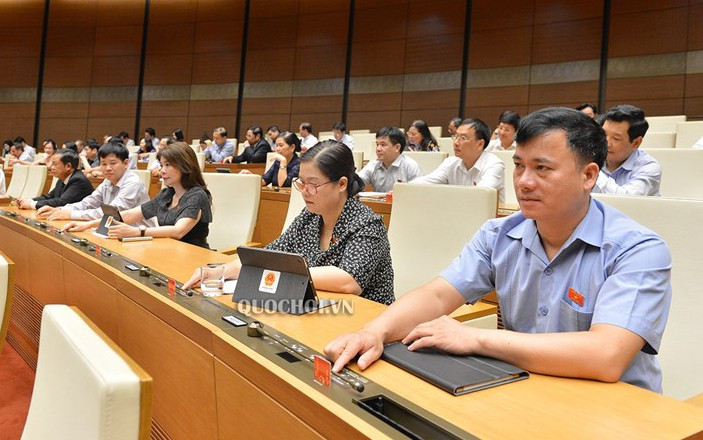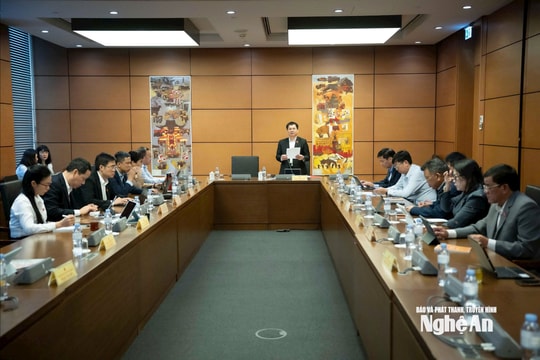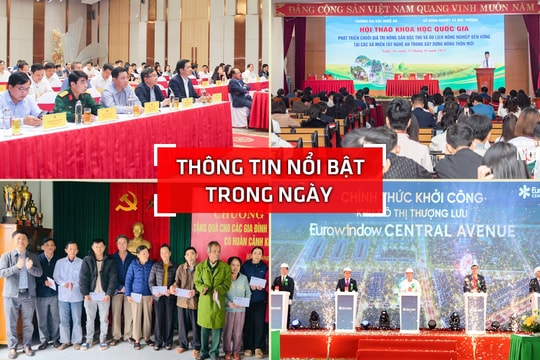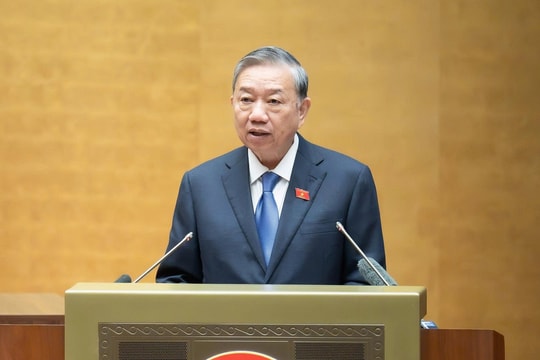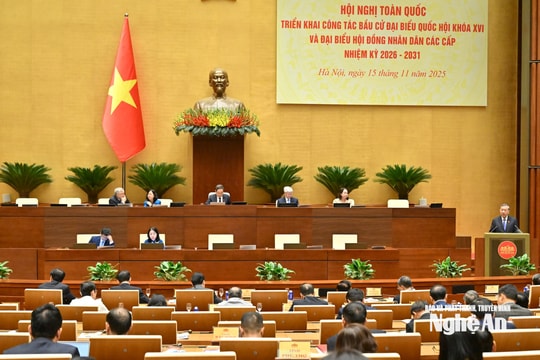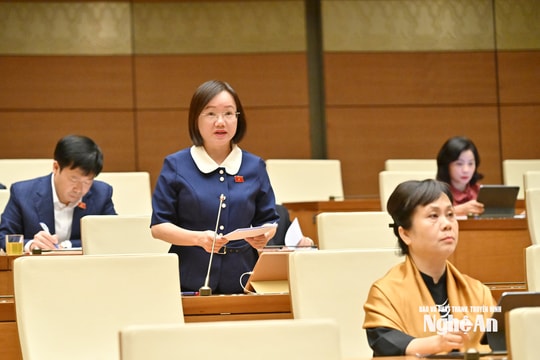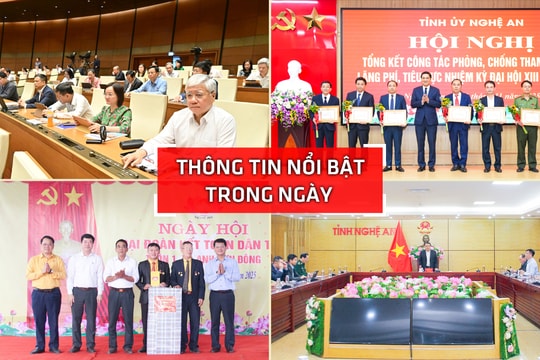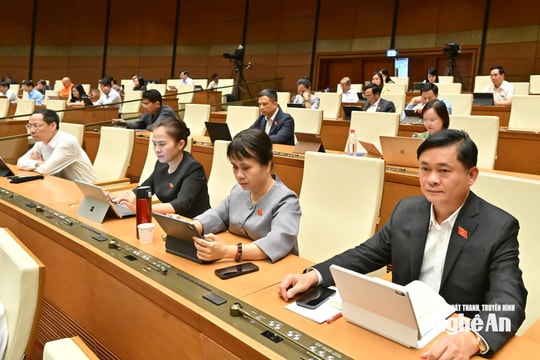The National Assembly voted to pass the amended Investment Law, banning debt collection services.
The National Assembly has just voted to pass the Investment Law (amended), which prohibits debt collection services.
This afternoon (June 17), the National Assembly voted to pass the Investment Law (amended) with 7 chapters, 77 articles and 4 appendices with 446/458 delegates voting in favor (accounting for 92.34% of the total number of National Assembly delegates). One of the notable points is the law prohibiting "debt collection service business".
Presenting the report on acceptance and explanation, Chairman of the Economic Committee Vu Hong Thanh said that the majority of opinions proposed to ban "debt collection service business". Some opinions suggested not to ban debt collection service business but to implement it according to the provisions of the current Law, and at the same time change the name to "debt collection service business".
|
| National Assembly deputies press the voting button at the 9th session of the 14th National Assembly. |
“Regarding this issue, the National Assembly Standing Committee has sent a ballot to ask for opinions from National Assembly deputies and would like to accept the majority of opinions from National Assembly deputies, the regulation prohibiting “debt collection service business” at Point h, Clause 1, Article 6,” said Mr. Vu Hong Thanh.
Before voting to pass the entire bill, the delegates agreed to the provisions as in Article 6 with 436/456 delegates participating in the vote in favor (accounting for 90.27% of the total number of National Assembly delegates).
The Law also stipulates a transitional provision that debt collection service transactions before the effective date of this Law shall cease to be effective from the effective date of this Law and the parties involved in the transaction shall carry out activities to liquidate the debt collection transaction in accordance with the provisions of civil law and relevant laws.
Previously, discussing this content, many opinions agreed with the Government's Proposal to ban "debt collection services" because recently, many businesses have taken advantage of this service to transform into gangs that extort property, lend at high interest rates, and engage in illegal credit activities, causing insecurity, disorder, and social insecurity, leading to many negative consequences for society.
Special investment incentives and support
Regarding the regulations on incentives and special investment support (Article 20), Mr. Vu Hong Thanh said that there was a proposal to remove the regulation on the Prime Minister deciding on investment projects that have a major impact on other socio-economic development at Point c, Clause 2, because this regulation is not clear about the criteria, preferential projects and special investment support that have been stipulated at Points a and b in this Clause.
The Standing Committee of the National Assembly accepts the removal of the provision at Point c, Clause 2 of this Article.
It is argued that the provision in Clause 3 with special investment incentives, up to 50% more than the highest incentives prescribed by law, leads to more incentives than those prescribed by tax law and land law. The above provision may lead to legal conflicts..
Explaining this content, the Chairman of the Economic Committee stated: The National Assembly Standing Committee would like to accept the direction of not regulating the ceiling level of special investment incentive policies in Clause 3, Article 20, but only regulating the incentive level and the application period of special incentives implemented according to the provisions of the Law on Corporate Income Tax and the law on land.
At the same time, the Law adds Clause 5a after Clause 5, Article 13 and adds Clause 1a after Clause 1, Article 14 of the Law on Corporate Income Tax in Clause 4, Article 75 of the draft Law, in order to institutionalize the Party's policies on orientations for perfecting institutions and policies, improving the quality and effectiveness of foreign investment cooperation until 2030 and for preferential policies to be implemented immediately after the Investment Law takes effect, creating conditions for the Government and the Prime Minister to be proactive in negotiating and attracting investment.
“The special investment incentives and support stipulated in this Article only apply to new investment projects, not to investment projects that have been granted Investment Certificates, Investment Registration Certificates or investment policy approvals before the effective date of this Law,” said Mr. Vu Hong Thanh.
The entire content of Article 20 was also voted through by the National Assembly with 448/458 delegates participating in the vote in favor (accounting for 92.75% of the total number of National Assembly delegates).
The Law takes effect from January 1, 2021./.

